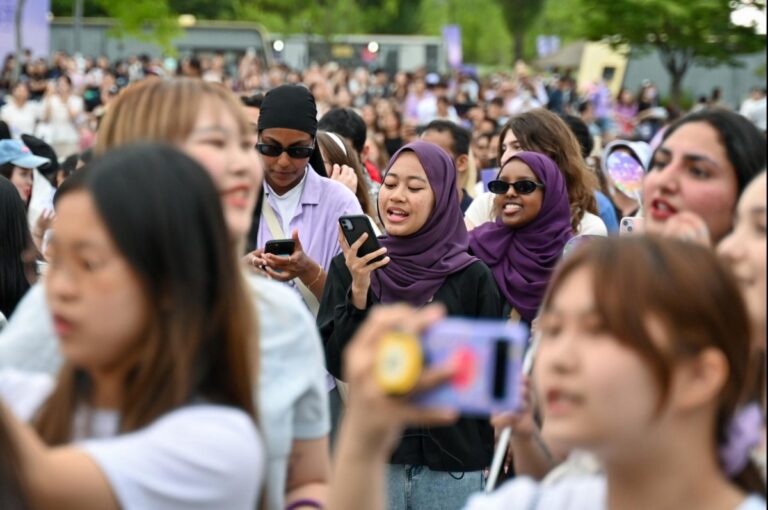South Korea will introduce a new K-culture visa for foreign trainees in the entertainment industry, the Ministry of Finance in Seoul announced on Monday. The “Korean Wave” of cultural exports such as K-pop and K-dramas is driving international tourism to South Korea, as seen at a BTS fan event in 2023. File Photo by Thomas Maresca/UPI
SEOUL, June 17 (UPI) — South Korea will introduce a new K-Culture visa for foreigners to receive training in the entertainment industry as part of a comprehensive plan to boost inbound tourism announced Monday.
South Korea’s Finance Ministry said it would trial the visa this year to capitalize on the overwhelming global popularity of “Hallyu,” or the Korean Wave, a cultural export that allows foreigners to stay in South Korea for longer periods while studying at training schools in fields such as K-pop, choreography and modeling.
advertisement
According to the ministry, tourists visiting South Korea have been getting younger in recent years, with K-content becoming the biggest attraction for people in their 20s and 30s.
The government is also considering expanding digital nomad visas, which allow foreigners to live in South Korea while working remotely.
A one-year trial of the digital nomad visa began in January, and authorities are considering adding region-specific services to give foreigners more incentive and choice to stay in the country.
The moves are part of a comprehensive plan to boost the tourism sector as it continues to recover from the effects of the COVID-19 pandemic.
The ministry said the number of foreign tourists visiting South Korea is expected to rise to 11 million in 2023 from a record low of 970,000 in 2021, the year the pandemic began. About 17.5 million people visited South Korea in 2019.
Despite rising tourist numbers, tourism revenues have been slow to recover: by April this year, tourist numbers were at 90% of pre-pandemic levels, but spending was only at 70%.
Officials say the main reasons are a shift from group travel to individual travel and a growing emphasis on cultural experiences over shopping.
The average length of stay also fell from 7.8 days last year to 6.5 days this year. The government has set a goal of attracting 30 million tourists to South Korea and generating $30 billion in tourism revenue by 2027, and hopes that special visas for K-culture trainees and digital nomads will encourage longer stays.
Other measures announced on Monday are aimed at shortening visa issuance times and streamlining entry procedures for foreign travellers.
Short-term public transport passes, increased foreign language content on domestic apps, and new air routes to countries such as Indonesia and Mongolia will also be introduced.

